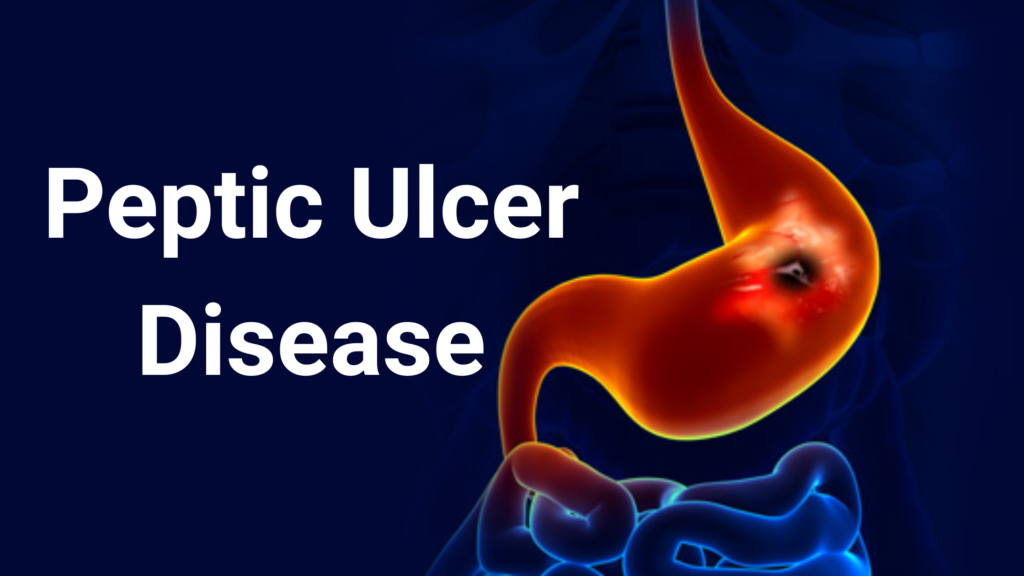🕳️ Peptic Ulcer Disease (PUD)
Peptic Ulcer Disease refers to painful sores or ulcers that develop in the lining of the stomach (gastric ulcers) or the first part of the small intestine (duodenal ulcers).
🔍 Causes
- Helicobacter pylori (H. pylori) infection (most common)
- Long-term use of nonsteroidal anti-inflammatory drugs (NSAIDs) like ibuprofen
- Excess stomach acid production (stress, smoking, alcohol, certain foods)
- Rarely, tumors causing excess acid (Zollinger-Ellison syndrome)
⚠️ Symptoms
- Burning or gnawing abdominal pain (often between meals or at night)
- Bloating and fullness
- Nausea or vomiting
- Heartburn or acid reflux
- Dark or bloody stools (sign of bleeding)
- Weight loss and loss of appetite (in severe cases)
🧪 Diagnosis
- Endoscopy with biopsy (to detect ulcer and H. pylori)
- Tests for H. pylori infection (breath, blood, stool tests)
- Imaging if complications suspected
🛠️ Treatment
- Eradication of H. pylori with antibiotics
- Proton pump inhibitors (PPIs) to reduce acid
- Avoid NSAIDs and irritants (smoking, alcohol)
- Medications to protect stomach lining (e.g., sucralfate)
⚠️ Complications
- Bleeding ulcers
- Perforation (hole in stomach/duodenal wall)
- Gastric obstruction due to swelling/scarring
